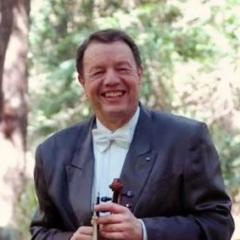UQ Associate Professor Denis Collins in collaboration with Dr Jason Stoessel from the UNE have launched the Canons Database (www.canons.org.au) - an interactive web site that aims to list every musical canon composed from the fourteenth century onwards.
The Canons Database is a major output from the Australian Research Council Discovery Project “Canon and Musical Change from c.1330 to c.1530” that Denis and Jason held from 2015 to 2018.
The first phase of implementation of the Canons Database concentrated on gathering and classifying canons from their earliest appearance in Western art music to the early sixteenth century. Denis and Jason are expanding the database as part of their current ARC project (“The Art and Science of Canon in the Music of Early 17th-Century Rome”).
The development of the Canons Database is linked to the innovative global work of the association for the preservation of all historical sources about music: Répertoire Internationale des Sources Musicales / International Repertoire of Musical Sources (RISM).
"A clear description of what a canon actually involves is hard to come by" A/Prof. Denis Collins explains. For the purposes of the research leading to the Canons Database, a canon is defined in the broadest sense as a polyphonic structure that results from one or more voices or parts being combined using strict repetition or systematic transformation of a melody.
"The wealth of creative invention in early musical canons is astonishing", Denis says, "because composers not only required performers to imitate melodies amongst themselves at different pitches but they also had them turn melodies upside down and sing them back to front according to all manner of rhythmic shortening and lengthening of notes".
Users of the Canons Database website can search for canons according to the names of composers, names of canonic compositions, manuscripts or early print editions of canons, or the type of canonic procedure used (straightforward imitation of a melody, inversion of a melody, retrograde motion, multiple canons heard simultaneously, and so on). Further development of the site will allow interested users to register so that they can add canonic items to the database and add information about works already listed on the site.
Although still in its early stages, the Canons Database is attracting great interest nationally and internationally, and promises to be a prestigious resource for lovers and researchers of music alike.


